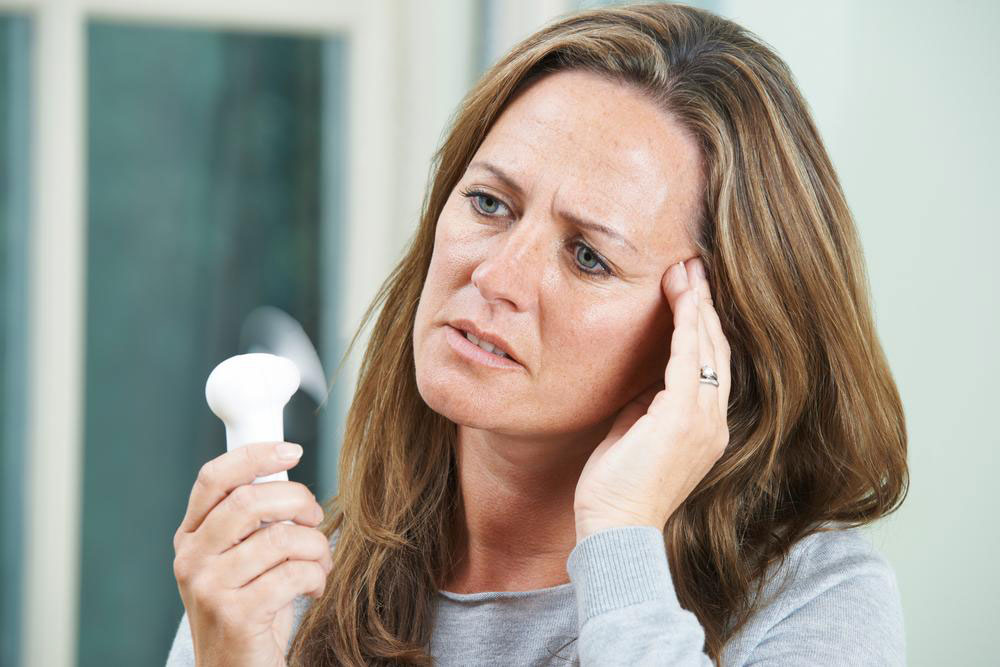Comprehensive Guide to Postmenopause: Symptoms, Risks, and Management Strategies
This comprehensive guide provides detailed insights into the postmenopausal stage, including its symptoms, health risks, and management strategies. It emphasizes the importance of proactive health measures, lifestyle modifications, and medical treatments to ensure women can enjoy a healthy, active life after menopause. Understanding these aspects helps women navigate this natural transition with confidence and vitality.

Menopause signifies the end of a woman's reproductive years, marking a significant transition in her biological journey. However, this transition does not happen suddenly; instead, it encompasses several stages, with postmenopause being a particularly important phase that follows menopause. Understanding the various aspects of postmenopause — including its symptoms, health risks, and management options — is essential for women to maintain optimal health and quality of life during this period. In this extensive guide, we will explore the intricacies of postmenopause, shedding light on its characteristics, common symptoms, associated health concerns, and strategies for effectively managing this stage of life.
Typically occurring between the ages of 45 and 55, postmenopause begins after a woman has experienced a year without menstrual periods. During this phase, the ovaries significantly reduce estrogen production, leading to various physiological and emotional changes. Recognizing these symptoms early and understanding their implications can empower women to take proactive steps toward their health.
Understanding the Postmenopausal Transition
The transition into postmenopause is a natural part of aging, driven primarily by hormonal shifts. The aging ovaries produce less estrogen and progesterone, hormones responsible for regulating the menstrual cycle and supporting various bodily functions. As hormone levels decline, women experience the gradual cessation of menstruation—a hallmark of menopause—and subsequently enter the postmenopausal phase. This process can vary among individuals, with some women experiencing more pronounced symptoms and others having a relatively smooth transition.
Key Symptoms of Postmenopause
Postmenopause manifests through a range of physical, emotional, and psychological symptoms. While some women may experience mild discomfort, others face significant challenges impacting their daily lives. It is crucial to understand these symptoms to seek appropriate management and support.
Hot Flashes and Skin Flushing: Sudden feelings of warmth, often accompanied by sweating and redness of the skin, are common during postmenopause. These episodes can occur several times a day and may persist for years.
Vaginal Dryness and Discomfort: Reduced estrogen levels can lead to thinning of vaginal tissues, causing dryness, itching, and discomfort during intimacy.
Sleep Disturbances: Insomnia, night sweats, and restlessness are typical, often exacerbated by hot flashes and hormonal changes.
Mood Swings and Emotional Changes: Mood fluctuations, anxiety, and even depression can occur during this phase, influenced by hormonal shifts and life circumstances.
Physical Changes: Women may notice weight gain, especially around the abdomen, and changes in skin elasticity, leading to wrinkles and sagging.
Decreased Libido: A decline in sexual desire is common, often linked to vaginal dryness, hormonal changes, and emotional factors.
Breast Discomfort: Some women experience tenderness or changes in breast tissue during postmenopause.
Health Risks Associated with Postmenopause
Beyond the immediate symptoms, postmenopause poses several health risks that necessitate vigilant monitoring and proactive management. As estrogen levels decline, women become more susceptible to certain chronic conditions, including:
Osteoporosis: The decreased estrogen accelerates bone loss, significantly increasing the risk of fractures and osteoporosis-related complications.
Cardiovascular Disease: Postmenopausal women face higher risks of heart disease, partly due to hormonal changes that negatively affect lipid profiles and blood vessel health.
Urinary Incontinence and Infections: Vaginal and urinary tract health may decline, leading to increased susceptibility to infections and urinary difficulties.
Mood Disorders and Cognitive Decline: The risk of depression, anxiety, and cognitive impairment may rise postmenopause.
Strategies for Managing Postmenopausal Symptoms and Risks
Effective management of postmenopausal symptoms and health risks involves a combination of lifestyle modifications, medical treatments, and regular health screenings. Here are some key strategies:
Maintaining a Healthy Diet
A balanced diet rich in calcium, vitamin D, and other essential nutrients supports bone health and overall well-being. Incorporating plenty of fruits, vegetables, lean proteins, and whole grains can help manage weight and reduce cardiovascular risks.
Regular Physical Activity
Engaging in weight-bearing exercises, such as walking, jogging, or strength training, can combat osteoporosis and improve cardiovascular health. Exercise also has positive effects on mood and sleep quality.
Hormone Replacement Therapy (HRT)
HRT involves supplementing estrogen (and progesterone if necessary) to alleviate hot flashes, vaginal dryness, and other symptoms. While effective, HRT should be carefully considered with a healthcare provider, weighing potential benefits against risks.
Managing Sleep and Mood
Practicing good sleep hygiene, stress reduction techniques like meditation, and counseling can improve emotional well-being and sleep quality.
Screenings and Regular Medical Check-ups
Routine screening for osteoporosis, cardiovascular health, and cancers (such as breast and pelvic exams) is vital. Early detection of issues like osteoporosis can lead to effective interventions.
Emerging Treatments and Future Directions
Research continues to explore new therapies for managing postmenopausal health. These include non-hormonal medications for hot flashes, novel bone-strengthening agents, and cognitive health interventions. Personalized medicine approaches are increasingly emphasizing tailored strategies based on individual health profiles.
Living a Healthy, Active Life Postmenopause
Postmenopause is a natural phase that, with proper care and management, can be turned into a period of vibrant health and activity. Staying informed, making healthy lifestyle choices, and maintaining regular medical consultations are key. Many women find that embracing this life stage with optimism, adequate support, and proactive health management leads to fulfilling and active years ahead.
In conclusion, understanding the postmenopausal phase is crucial for women to navigate this transition successfully. Recognizing symptoms early, managing health risks, and adopting a holistic approach to well-being can help women enjoy a healthy, active life beyond menopause. With ongoing medical advancements and increased awareness, postmenopause can be viewed not as an end, but as a new beginning in a woman’s life.





